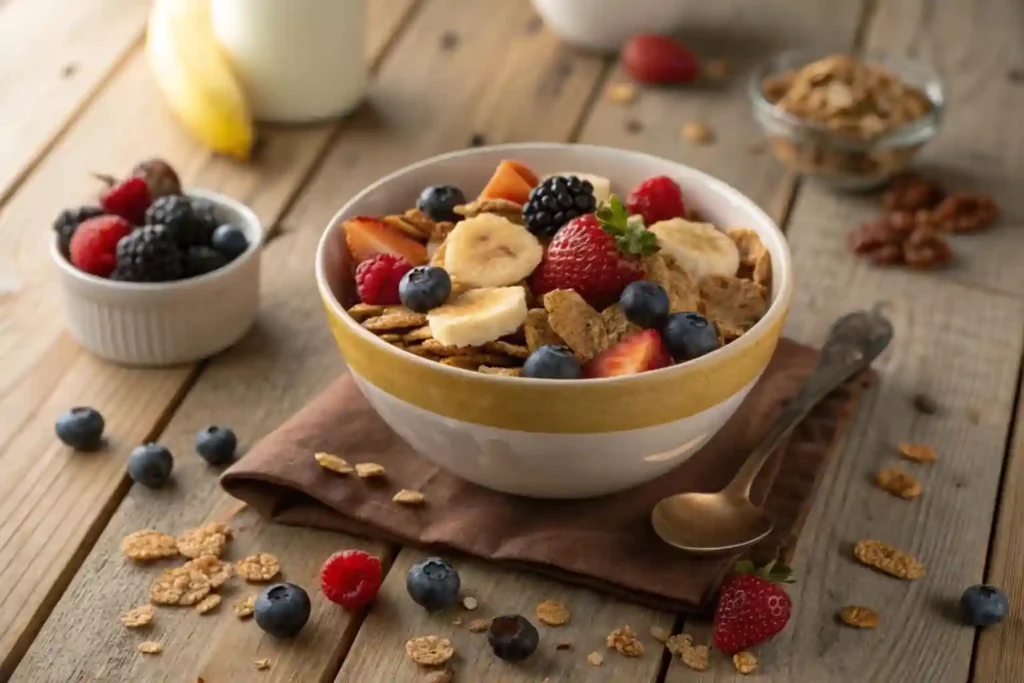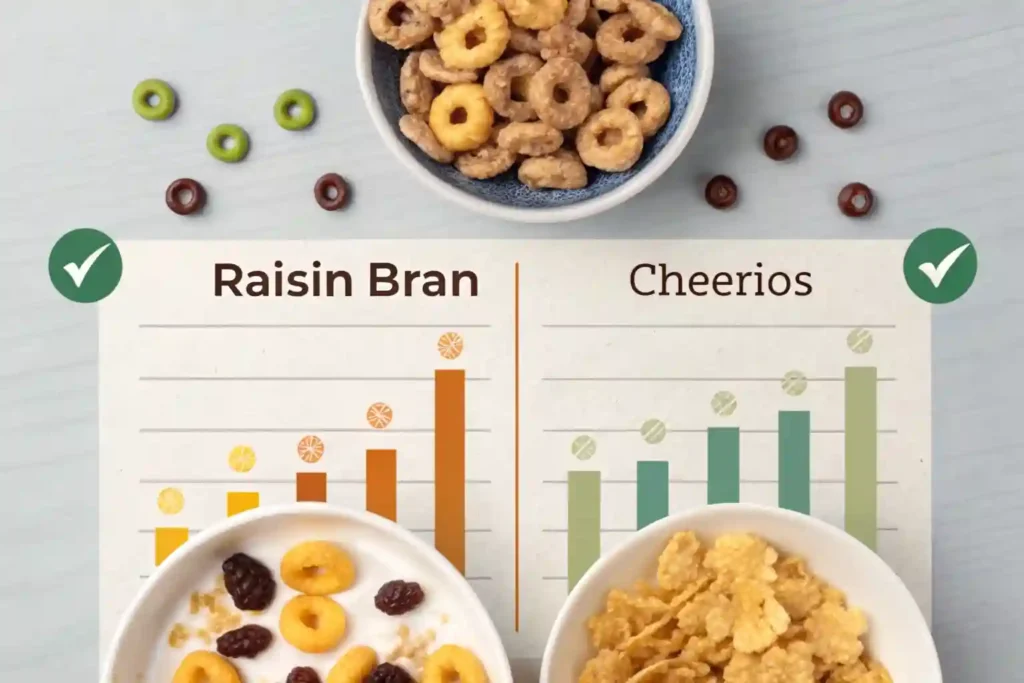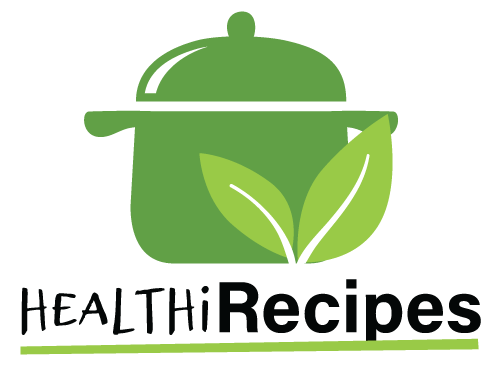Table of Contents
1. Is Raisin Bran Healthy or Unhealthy?
Raisin Bran is a popular breakfast cereal that many people enjoy for its sweet taste and crunchy texture. However, the question remains: is Raisin Bran healthy or unhealthy? To answer this, we need to examine its nutritional profile and the potential health benefits and drawbacks.
Nutritional Overview
Raisin Bran typically contains the following nutrients per serving (about 60 grams):
- Calories: Approximately 190
- Total Fat: 1.5 grams
- Sodium: 200 milligrams
- Total Carbohydrates: 44 grams
- Dietary Fiber: 7 grams
- Sugars: 18 grams
- Protein: 5 grams
- Vitamins and Minerals: Often fortified with iron, vitamin D, and B vitamins.
The high fiber content, primarily from whole grains and raisins, is one of the standout features of Raisin Bran. Fiber is essential for digestive health and can help maintain a healthy weight.
Health Benefits
- High in Dietary Fiber:
- The fiber in Raisin Bran can aid digestion and promote a feeling of fullness, which may help with weight management.
- It can also lower cholesterol levels and improve heart health.
- Rich in Vitamins and Minerals:
- Raisin Bran is often fortified with essential vitamins and minerals, including iron and vitamin D, which are crucial for overall health.
- Antioxidant Properties:
- Raisins contain antioxidants that can help combat oxidative stress in the body, potentially reducing the risk of chronic diseases.
Potential Drawbacks
- High Sugar Content:
- One of the main concerns about Raisin Bran is its sugar content. With about 18 grams of sugar per serving, it can contribute to excessive sugar intake, especially if consumed in large quantities or alongside other sugary foods.
- Caloric Density:
- While Raisin Bran provides some nutritional benefits, it is also relatively high in calories compared to other breakfast options, which may not be ideal for those watching their caloric intake.
- Processing Concerns:
- Some consumers may be wary of the processing involved in making breakfast cereals, which can strip away some nutrients and add unwanted ingredients.
In conclusion, while Raisin Bran has several health benefits, it is essential to consider its sugar content and caloric density. Moderation is key, and it can be a part of a balanced diet when consumed mindfully.
2. Is Raisin Bran Okay for Weight Loss?

When it comes to weight loss, many people are cautious about their breakfast choices. So, is Raisin Bran okay for weight loss? Let’s explore this question by looking at its caloric content, satiety factor, and tips for portion control.
Caloric Content
As mentioned earlier, a serving of Raisin Bran contains approximately 190 calories. While this is not excessively high, it is essential to consider how it fits into your overall daily caloric intake.
- Caloric Balance: To lose weight, you need to consume fewer calories than you burn. If Raisin Bran fits within your caloric goals, it can be included in your diet.
Satiety Factor
One of the advantages of Raisin Bran is its high fiber content. Fiber plays a crucial role in promoting satiety, which can help you feel full longer and reduce the likelihood of snacking between meals.
- Fiber Benefits:
- The 7 grams of dietary fiber in Raisin Bran can help slow digestion and keep you feeling satisfied.
- Including fiber-rich foods in your breakfast can help curb hunger throughout the day.
Portion Control
While Raisin Bran can be a healthy choice, portion control is vital, especially for those looking to lose weight. Here are some tips:
- Measure Your Serving: Stick to the recommended serving size of about 60 grams to avoid consuming excess calories.
- Pair with Protein: Consider adding a source of protein, such as Greek yogurt or nuts, to your Raisin Bran. This combination can enhance satiety and provide a more balanced meal.
- Mindful Eating: Pay attention to your hunger cues and eat slowly to help prevent overeating.
In summary, Raisin Bran can be a suitable option for weight loss when consumed in moderation and as part of a balanced diet. Its fiber content can aid in satiety, but it’s essential to be mindful of portion sizes and overall caloric intake.
3. Is Raisin Bran a Highly Processed Food?
The term “highly processed food” often raises concerns among health-conscious consumers. So, is Raisin Bran a highly processed food? To answer this, we need to define what constitutes highly processed foods and analyze Raisin Bran’s ingredients.
Processing Levels
Highly processed foods typically undergo significant alterations from their original form, often involving the addition of sugars, unhealthy fats, and preservatives. These foods may lack essential nutrients and fiber.
Ingredient Analysis
When examining the ingredients list of Raisin Bran, you may find:
- Whole Grain Wheat: The primary ingredient, which is a good source of fiber and nutrients.
- Raisins: Natural sweeteners that provide some vitamins and minerals.
- Sugar: Added sugar is often present, contributing to the overall sugar content.
- Vitamins and Minerals: Many brands fortify their cereals with additional nutrients.
While Raisin Bran does contain processed ingredients, it also includes whole grains and natural components like raisins. The presence of added sugars is a concern, but the overall nutritional profile can still be beneficial.
Comparison with Other Cereals
When comparing Raisin Bran to other breakfast cereals, it’s essential to consider:
- Sugar Content: Some cereals may have higher sugar levels, making Raisin Bran a relatively better option.
- Fiber Content: Raisin Bran often has more fiber than many sugary cereals, which can be advantageous for digestive health.
In conclusion, while Raisin Bran does contain processed ingredients, it also offers nutritional benefits that can make it a healthier choice compared to many other breakfast cereals. Understanding the balance between processing and nutrition is key to making informed dietary choices.
4. What is Healthier, Raisin Bran or Cheerios?

When it comes to choosing a healthy breakfast cereal, many people often compare popular options. So, what is healthier, Raisin Bran or Cheerios? Let’s break down the nutritional profiles and health benefits of both cereals.
Nutritional Comparison
To make an informed decision, it’s essential to look at the nutritional content of both cereals per serving (approximately 30 grams for Cheerios and 60 grams for Raisin Bran):
Raisin Bran (per 60g serving):
- Calories: 190
- Total Fat: 1.5 grams
- Sodium: 200 milligrams
- Total Carbohydrates: 44 grams
- Dietary Fiber: 7 grams
- Sugars: 18 grams
- Protein: 5 grams
Cheerios (per 30g serving):
- Calories: 100
- Total Fat: 2.5 grams
- Sodium: 140 milligrams
- Total Carbohydrates: 20 grams
- Dietary Fiber: 3 grams
- Sugars: 1 gram
- Protein: 3 grams
Sugar and Fiber Content
- Sugar: Raisin Bran contains significantly more sugar (18 grams) compared to Cheerios (1 gram). This high sugar content can be a concern for those monitoring their sugar intake.
- Fiber: Raisin Bran offers more fiber (7 grams) than Cheerios (3 grams), which can aid in digestion and promote satiety.
Taste and Texture
- Raisin Bran: Known for its sweet flavor and chewy raisins, it appeals to those who enjoy a sweeter breakfast.
- Cheerios: Offers a mild, slightly nutty flavor and a crunchy texture, making it versatile for various toppings.
5. What is Healthy in Dry Cereal to Eat?
With so many cereal options available, it can be challenging to determine what is the healthiest dry cereal to eat. Here are some criteria to consider when evaluating cereals:
Criteria for Healthy Cereal
- High Fiber Content: Look for cereals with at least 5 grams of fiber per serving.
- Low Sugar: Aim for cereals with less than 10 grams of sugar per serving.
- Whole Grains: Choose cereals that list whole grains as the first ingredient.
- Minimal Additives: Avoid cereals with artificial colors, flavors, or preservatives.
Top Healthy Cereals
Here are some cereals that meet these criteria:
- Oatmeal: A classic choice, oatmeal is high in fiber and can be customized with fruits and nuts.
- Cheerios: As mentioned earlier, Cheerios are low in sugar and provide a good amount of fiber.
- Kashi Go Lean: This cereal is high in protein and fiber, making it a filling option.
- Bran Flakes: Similar to Raisin Bran but without the added sugar from raisins, bran flakes are a great source of fiber.
- Shredded Wheat: Made from whole wheat, this cereal is high in fiber and contains no added sugars.
Personal Preferences
Ultimately, the healthiest cereal for you may depend on your dietary needs and preferences. Consider factors such as taste, texture, and how the cereal fits into your overall meal plan.
In summary, the healthiest dry cereal is one that is high in fiber, low in sugar, and made from whole grains. By evaluating your options based on these criteria, you can make a more informed choice for your breakfast.
6. Why is Raisin Bran healthy or High in Sugar?
One of the most common questions about Raisin Bran is, why is Raisin Bran so high in sugar? Understanding the sources of sugar in this cereal can help clarify its nutritional profile.
Sugar Sources
- Raisins:
- Raisins are naturally sweet and contribute a significant amount of sugar to Raisin Bran. While they provide some nutritional benefits, they also increase the overall sugar content.
- Added Sugars:
- Many brands of Raisin Bran include added sugars to enhance flavor. This can significantly increase the sugar content per serving.
Health Implications
- Excessive Sugar Intake: Consuming high amounts of sugar can lead to various health issues, including weight gain, increased risk of heart disease, and dental problems.
- Blood Sugar Spikes: Foods high in sugar can cause rapid spikes in blood sugar levels, which may lead to energy crashes later in the day.
Alternatives
If you’re concerned about sugar intake but still want to enjoy Raisin Bran, consider these alternatives:
- Look for Low-Sugar Options: Some brands offer lower-sugar versions of Raisin Bran.
- Mix with Unsweetened Cereal: Combine Raisin Bran with a low-sugar cereal to reduce overall sugar content while still enjoying the flavor of raisins.
- Add Fresh Fruit: Instead of relying on the sugar from raisins, consider adding fresh fruit to your cereal for natural sweetness and additional nutrients.
In conclusion, Raisin Bran is high in sugar primarily due to the natural sugars in raisins and added sugars from processing. Being mindful of sugar intake and exploring alternatives can help you enjoy this cereal without compromising your health.
7. Conclusion
In summary, the question of whether Raisin Bran is healthy involves a nuanced understanding of its nutritional profile, benefits, and drawbacks. Here are the key takeaways:
- Nutritional Benefits: Raisin Bran is high in dietary fiber, which can aid digestion and promote satiety. It also contains essential vitamins and minerals, making it a decent breakfast option when consumed in moderation.
- Sugar Content: One of the main concerns is its sugar content, primarily from raisins and added sugars. This can be a drawback for those monitoring their sugar intake.
- Weight Loss Considerations: Raisin Bran can fit into a weight loss plan if consumed mindfully, focusing on portion control and pairing it with protein-rich foods.
- Processing Levels: While Raisin Bran does contain processed ingredients, it also includes whole grains and natural components, making it a better choice than many other sugary cereals.
For those looking for alternatives, you might explore options like Cheerios or other cereals that are lower in sugar and still provide a satisfying breakfast experience. Additionally, incorporating fresh fruits or protein sources can enhance the nutritional value of your meal.
Ultimately, Raisin Bran can be part of a balanced diet, but it’s essential to be mindful of portion sizes and overall sugar intake.
8. FAQs
1. Is Raisin Bran healthy or unhealthy?
Raisin Bran has both health benefits and drawbacks. It is high in fiber and fortified with vitamins but also contains a significant amount of sugar. Moderation is key.
2. Is Raisin Bran healthy and okay for weight loss?
Yes, Raisin Bran can be included in a weight loss plan if consumed in moderation and paired with protein-rich foods to enhance satiety.
3. Is Raisin Bran a highly processed food?
Raisin Bran contains processed ingredients, including added sugars. However, it also includes whole grains and natural components, making it a better option than many other cereals.
4. What is healthier, Raisin Bran or Cheerios?
Cheerios are generally healthier due to their lower sugar content. Raisin Bran has more fiber but also significantly more sugar.
5. What is the healthiest dry cereal to eat?
The healthiest dry cereals are those high in fiber, low in sugar, and made from whole grains. Options like oatmeal, bran flakes, and Kashi Go Lean are excellent choices.

